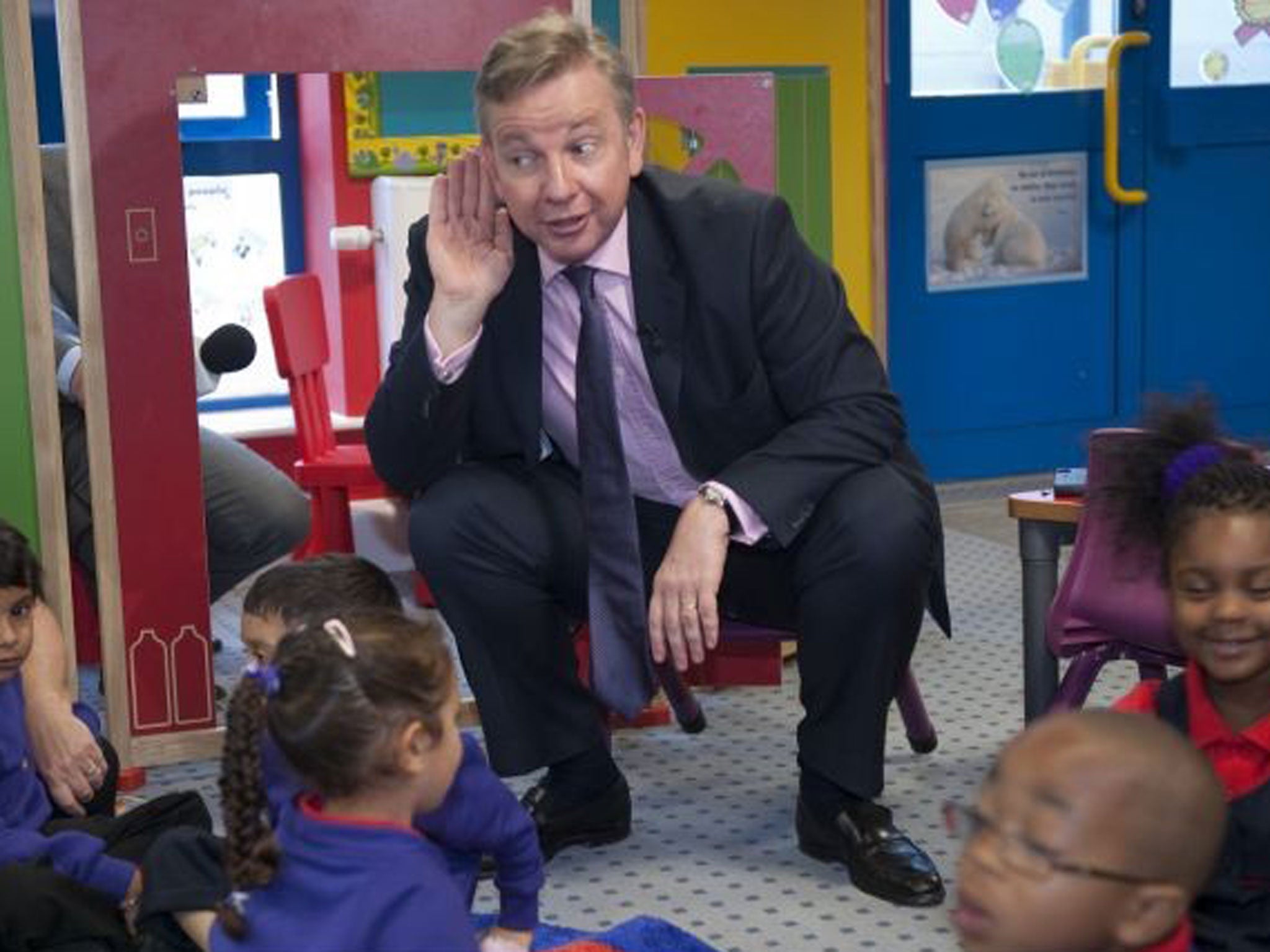Litter clearing and weeding for rulebreakers? Finally, a half-decent idea from Michael Gove
Less impressive is the Education Secretary's suggestion that we should bring back the writing of lines – a wholly un-educational exercise


Schools are microcosms of society. And just as most adults are law abiding so most children and teenagers abide by most school rules most of the time. It’s how societies work.
And it’s the existence of sanctions which makes sure they do. One of the reasons I don’t drive at 80 mph in a 50 mph limit is that I don’t want to pay a fine and get points on my licence. Similarly I don’t buy and sell illegal drugs because I don’t want to go to prison.
That’s why schools need rules and sanctions to make sure that the rules are adhered to. Ideally – and probably – the sanctions won’t need to be applied very often but everyone knows they’re there and that they will operate in the event of unacceptable behaviour or actions. Sanctions are not the same as discipline. They simply – but strongly - underpin it.
So I’m three quarters with Michael Gove on this one. New guidelines for teachers, to be issued this week, actively encourage schools not to be afraid of imposing sanctions and clarify what sorts of punishments schools may use.
Anything which actively helps the community gets my vote. So I’m pleased to see litter clearing, weeding, help to clean dining areas and other such menial tasks on Gove’s list of suggestions. I worked in a boarding school where ‘doing a dirty job’ (such as cleaning a cooker in a boarding house) was a standard punishment and it worked well. The pupil learned that the misdemeanour was unacceptable – and the cooker got cleaned which helped others.
Also advocated in the new guidelines is the forfeit of privileges such as taking part in a non-uniform day and that makes sense too. You could also exclude miscreants from certain school trips (the ones which don’t relate directly to the curriculum) or in-school treats.
From a practical point of view insisting that pupils report to school early or attend same day detentions is likely to be more difficult. However cooperative parents are (and they aren’t always, as any teacher will tell you) huge numbers of school pupils are dependant on once a day school buses. Any school which deliberately makes a pupil miss the bus is likely to have problems with car-less parents or those who are at work and/or unable to make alternative transport arrangements. I suspect Gove and his head-in-the-clouds civil servants simply haven’t spent enough time in 21st century schools to understand just what the logistical problems are. Few children live round the corner and walk to and from school independently as many did in, say, the 1950s and 60s.
And for goodness sake don’t anyone even think of bringing back the writing of lines as Gove advocates. It tells children loudly and clearly that writing is a boring activity and to be avoided – even adults think so which is why they use it as a punishment. It’s a profoundly un-educational message. For the same reason copying passages out of books such as the Bible or a dictionary, both of which I have seen used as punishments in the distant past, should be an absolute no no too.
Otherwise yes, support teachers and schools in the setting up of sensible, workable, constructive sanctions so that children and teenagers can see exactly where the boundaries are. But we must never forget to aim for schools in which good behaviour and respect for others are so well established that sanctions are rarely needed. Some have achieved that. It should be the norm.
Join our commenting forum
Join thought-provoking conversations, follow other Independent readers and see their replies
Comments
Bookmark popover
Removed from bookmarks